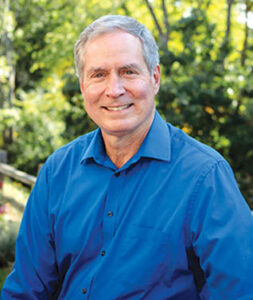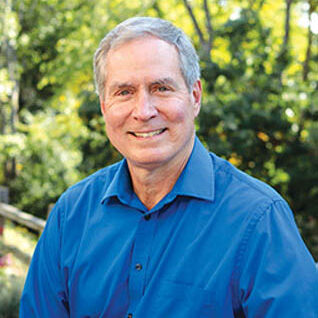 |
Serving as a vacancy pastor recently put me behind a pulpit on a weekly basis. It had been quite a while since I prepared sermons with that degree of regularity. In the first half of my ministry, I served as a parish pastor, but the second half of my ministry—serving as a college professor—placed me in a classroom much more often than behind a pulpit.

The weekly demand of writing and delivering sermons was a good challenge to undertake again. And, without question, preaching is challenging. Why is that? Pastors present sermons to groups of people that are immensely diverse. Hearers are young and old, new to the faith and longtime believers; they acquire information differently and have varying attention spans. Any communicator would find these variables challenging. But there is more.
Congregations have varied expectations of their preachers. Some listeners want a verse-by-verse exposition of the sermon text, others are interested in a thematic approach. Some find illustrations helpful and memorable, others consider them distracting and superfluous. Some want a brief message, others long for a lengthy sermon. Some prefer that the pastor preach from the pulpit, others would rather see the preacher stand and walk in front of the altar. Considering these and other expectations, is it any wonder that people can disagree on what constitutes a good preacher?
Martin Luther had his own ideas on the subject. He wrote that a good preacher “[(1)] must be apt to teach; (2) he should have a good head; (3) be eloquent; (4) should have a good voice; (5) a good memory; (6) should know how to stop; (7) should be industrious in his work; (8) should hazard life and limb in his work; (9) should let himself be plagued by everybody. Finally, he should patiently bear the fact that nothing is seen more easily and quickly in preachers than their faults. A preacher who has a hundred virtues obscures all with one fault” (What Luther Says, Vol. 3, pp. 1109,1110).
Luther’s last two requirements are especially interesting. Paraphrased, a preacher needs to have thick skin and be humble. That is because pastors who faithfully proclaim and apply God’s Word will certainly upset listeners; the hard truths of Scripture are unsettling even to some Christians. Rather than give in to the itching ear syndrome (2 Timothy 4:3), faithful pastors will present a message that people need to hear. That includes the messages of God’s law and God’s gospel.
“All have sinned and fall short of the glory of God” (Romans 3:23) is a message all people need to hear, as it identifies their sinfulness and need for a Savior. “We preach Christ crucified” (1 Corinthians 1:23) is another, greater message all people need to hear. But in addition to hearing that Christ died for them, people need to hear that Christ was their perfect substitute in life. Jesus lived the holy life demanded of all people, and that perfection is credited to those who believe in him. Finally, people need to hear that Jesus rose victoriously from the dead. His resurrection is proof positive that he did everything necessary for salvation, leaving his followers with the joyful response of thanking and praising God with their lives.
Currently, I am back to listening to more sermons than preparing and delivering them. The way I see it, I’m in a win-win situation. Either I prepare sermons for others while personally benefiting from the study of God’s Word, or I am on the receiving end of another pastor’s sermon work. In either situation, God feeds, blesses, and strengthens.
Author: James Pope
Volume 110, Number 02
Issue: February 2023
- What to know before you go
- Preachers and listeners
- “You came to visit me”
- One little word
- Appreciating the clouds
- The heavenly gardener
- Jesus wept
- A memorable Trinity Sunday sermon
- Sympathy +
- Remembering a rite
- Pastor and wife appreciation month
- Thankful saints
- Opening doors in Advent and beyond
- Practicing Christian freedom
- He loves me, he loves me not







